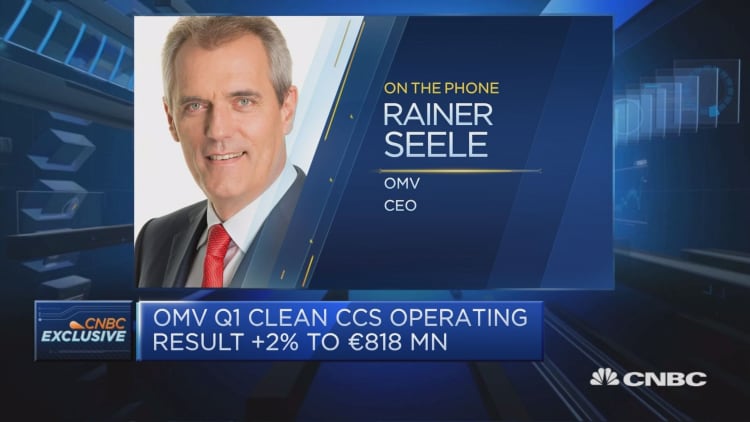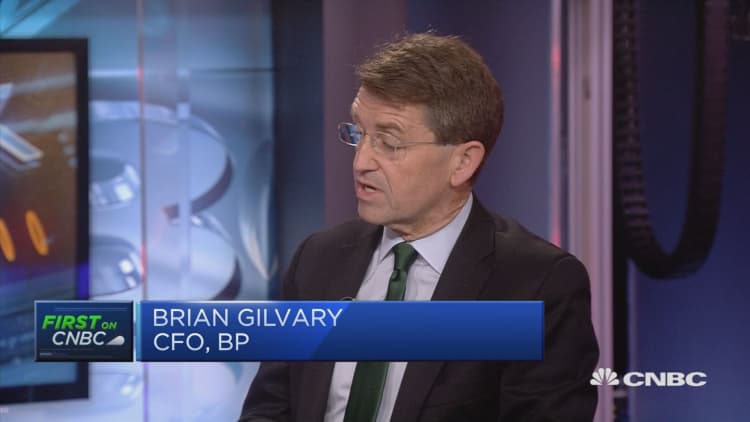Oil prices rose on Thursday, boosted by OPEC production cuts and the potential for new U.S. sanctions against Iran, but gains were limited by growing U.S. crude inventories.
Crude futures reversed early losses on Thursday, tracking a rebound in the U.S. equity market. Oil futures have recently moved in tandem with equity markets.
U.S. West Texas Intermediate (WTI) crude futures ended Thursday's session up 50 cents at $68.43 per barrel. Brent crude oil futures rose 52 cents to $73.88 per barrel by 2:08 p.m. ET.
"The price move today is probably based off Iran and the tight oil supply market that we already have," said Rob Thummel, portfolio manager at energy investment manager Tortoise Capital in Leawood, Kansas.
"The margin for error right now is just so low in the oil market that you can't just take supply off the market."

The May 12 deadline for U.S. President Donald Trump to decide whether to continue waiving U.S. sanctions against Iran was also buffeting downward pressure on prices.
Iran's foreign minister said U.S. demands to change its 2015 nuclear agreement with world powers were unacceptable as a deadline set by President Donald Trump for Europeans to "fix" the deal loomed.
Trump has all but decided to withdraw from the 2015 Iran nuclear accord by May 12, sources said, though exactly how he will do so remains unclear.
Iran re-emerged as a major oil exporter in January 2016 when international sanctions against Tehran were suspended in return for curbs on Iran's nuclear program.
Iran re-emerged as a major oil exporter in January 2016 when international sanctions against Tehran were suspended in return for curbs on Iran's nuclear program.
Also supporting prices, North Sea oilfields connected to the Brent oil pipeline have stopped production due to a shutdown at the UK's Sullom Voe oil terminal, the Brent pipeline operator said, reducing output of the crude.
Global oil supply has tightened with production cuts led by the Organization of the Petroleum Exporting Countries and its allies. The latest Reuters survey showed OPEC pumped around 32 million barrels per day (bpd) in April, slightly below its target of 32.5 million bpd, due largely to plunging output in Venezuela.

Russia on Thursday said its own compliance with a global deal with OPEC and other producers to curb output stood at 95.2 percent in April, with its output unchanged at 10.97 million bpd.
However, rising U.S. oil supply tempered oil futures gains.
Oil firms have ramped up January to May production faster than at any other time in at least half a decade, Thomson Reuters Eikon data shows.
On Wednesday, U.S. government data showed a 6.2-million-barrel jump in crude inventories last week. U.S. production also hit a new weekly record of 10.62 million bpd, ahead of top OPEC producer Saudi Arabia and just below No. 1 producer Russia.
Inventories at the Cushing, Oklahoma storage hub climbed by about 152,000 barrels in the week to May 1, according to market intelligence firm Genscape, traders who saw the data said.
WATCH: BP CFO on oil prices


